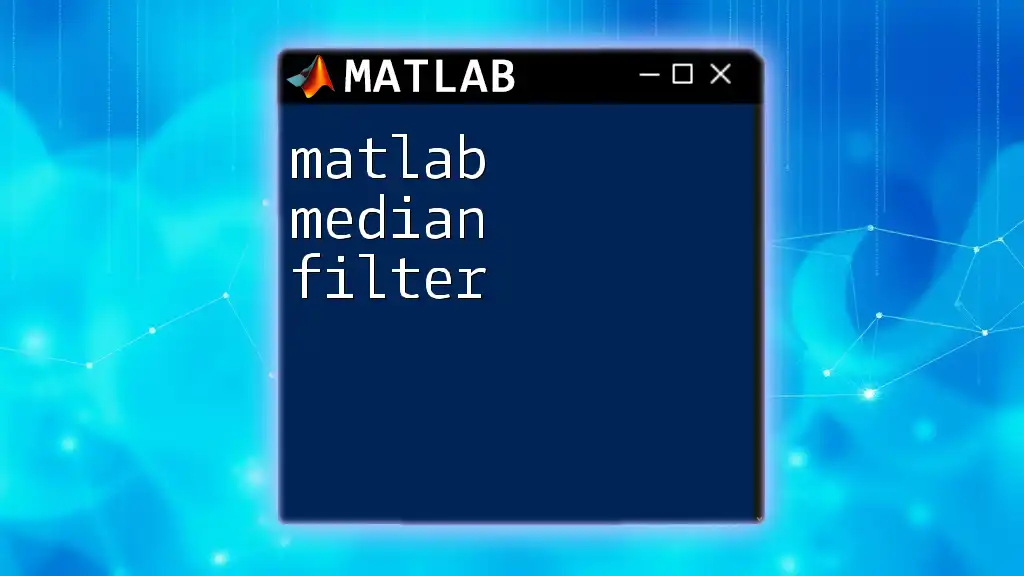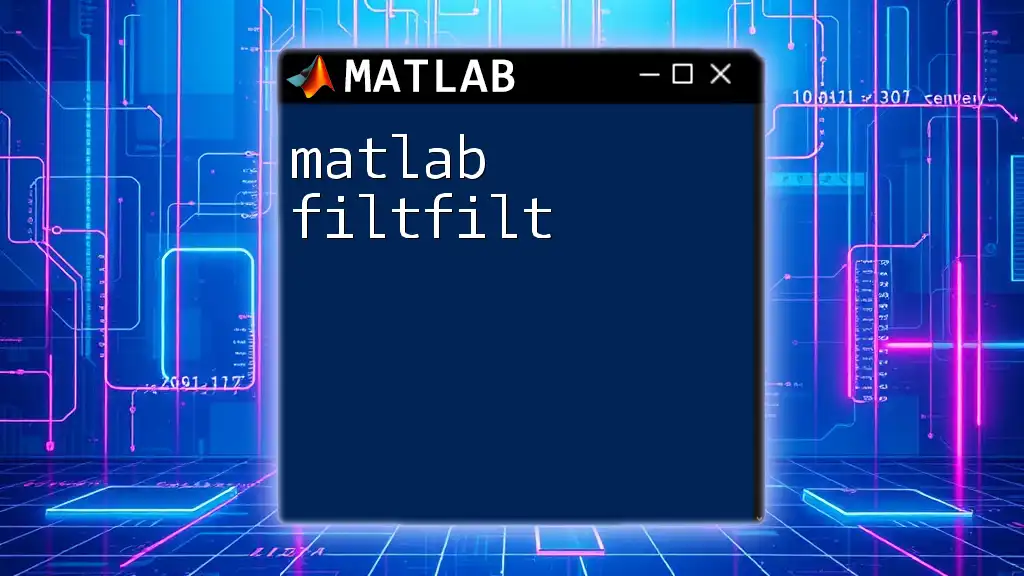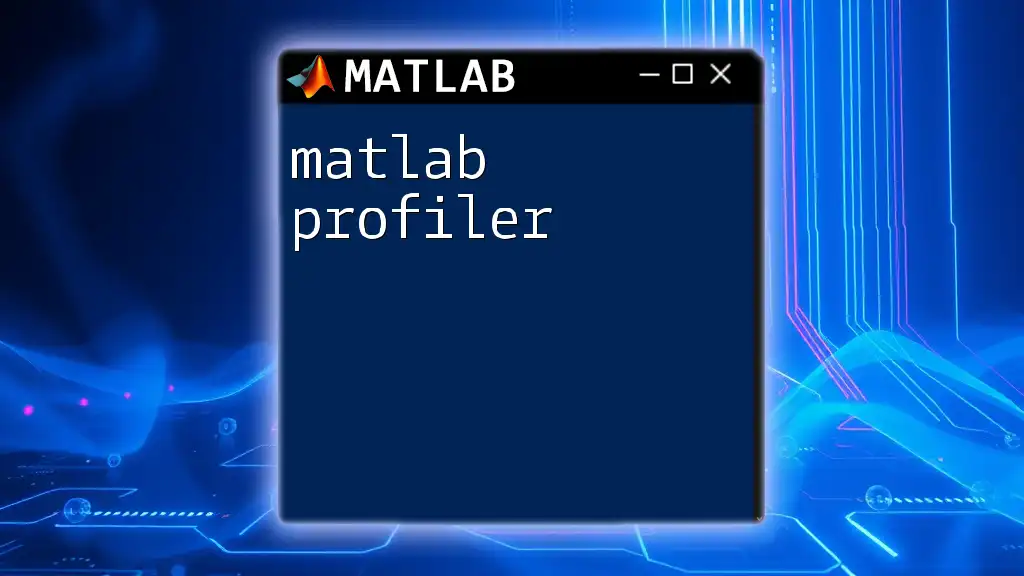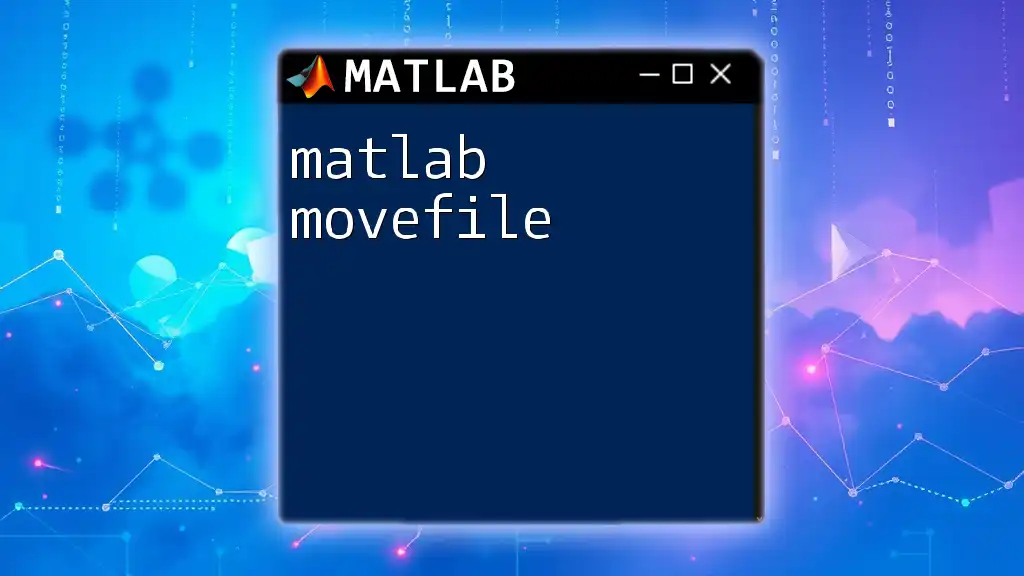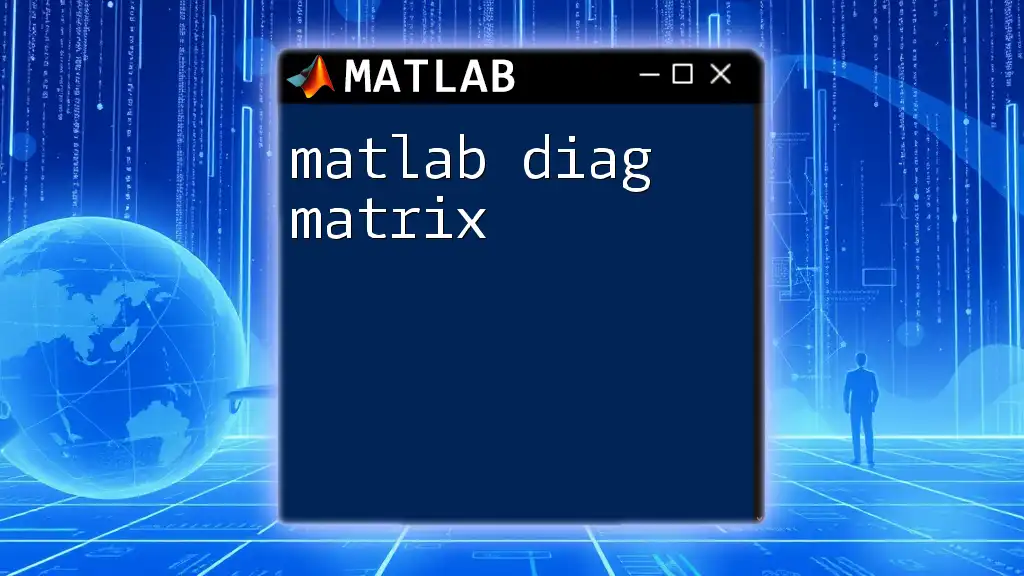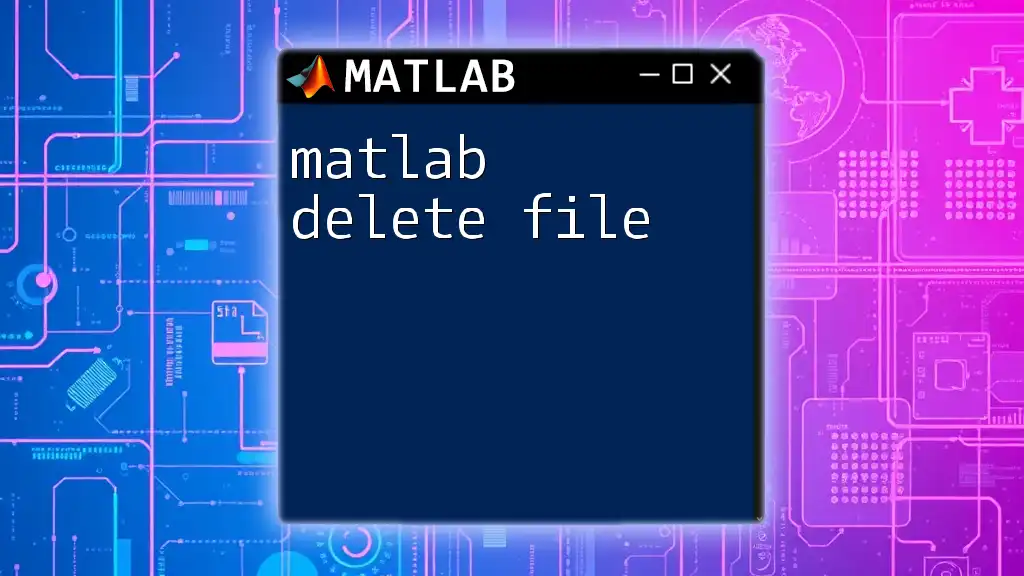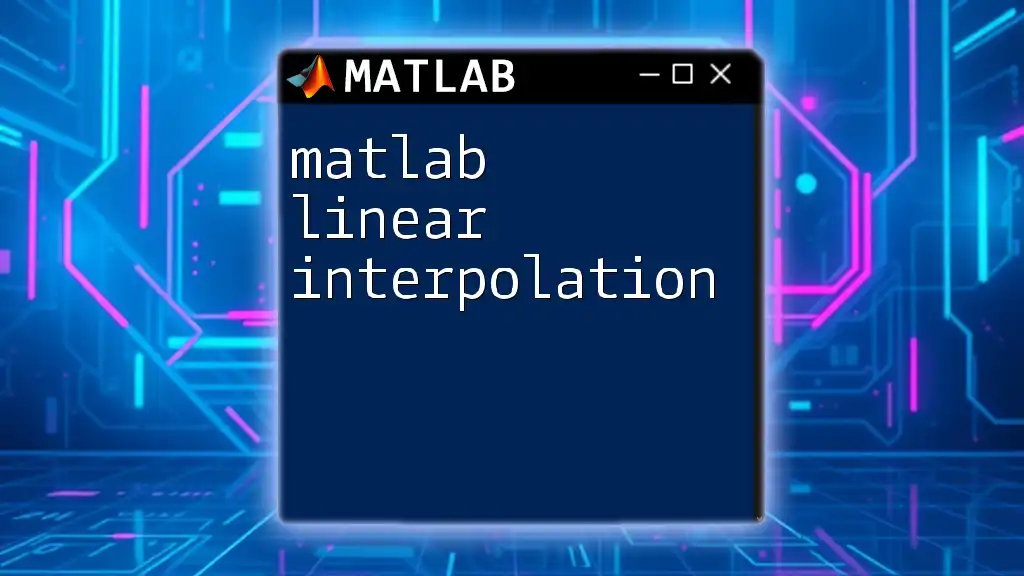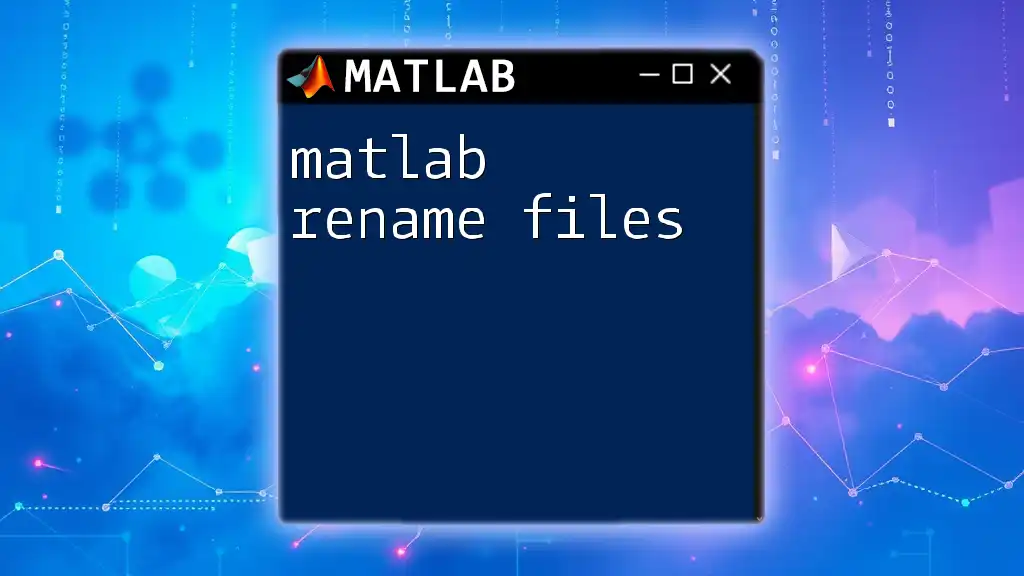A median filter is a non-linear digital filtering technique used to remove noise from an image or signal by replacing each pixel value with the median value of its neighboring pixels.
filtered_image = medfilt2(noisy_image, [3 3]);
What is a Median Filter?
A median filter is a non-linear digital filtering technique widely used in image and signal processing to reduce noise. It works by replacing each pixel's value in an image with the median value of the pixels in its neighborhood. This technique is particularly effective for removing salt-and-pepper noise while preserving edges in images.
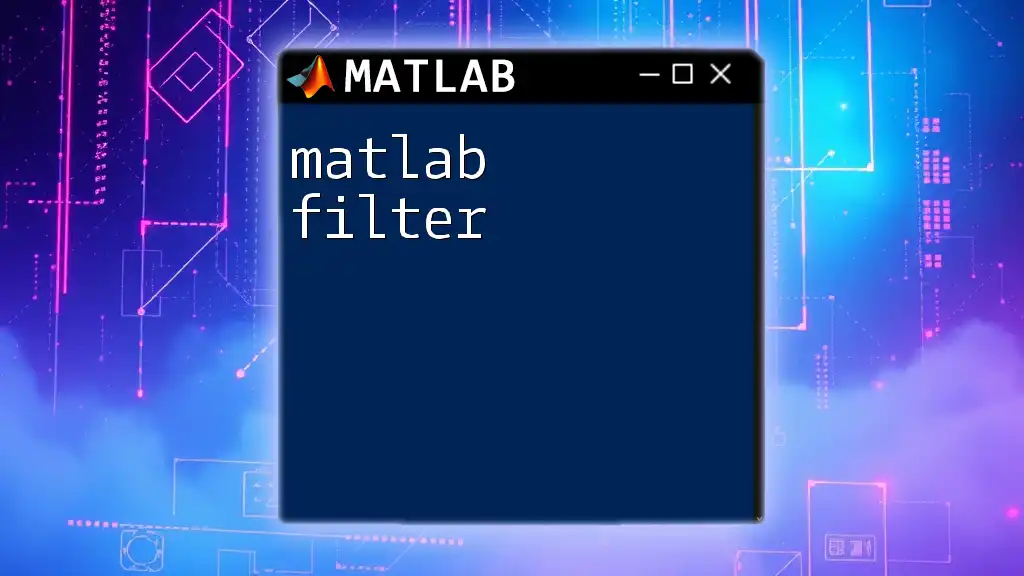
Why Use a Median Filter?
The primary benefit of using a median filter lies in its ability to effectively smooth out the noise without blurring edges. Unlike mean filters, which calculate the average of pixel values and can lead to blurring, the median filter focuses on the middle pixel value, thereby maintaining important structural features in images. This makes the median filter a preferred choice in various applications, including medical imaging and enhancement of raw data from sensors.

How Median Filter Works
Conceptual Overview
At its core, the median filter operates by moving a window (kernel) over an image. For each pixel, the values of the pixels within the window are sorted, and the median of this sorted list replaces the original pixel value. This method not only reduces noise but also maintains the overall structure and details of the image.
Mathematical Foundation
To compute the median, the algorithm sorts the pixel values from the defined neighborhood and selects the middle value. For instance, if we have a 3x3 pixel neighborhood:
[x1, x2, x3]
[x4, x5, x6]
[x7, x8, x9]
The sorted list becomes `[x1, x2, x3, x4, x5, x6, x7, x8, x9]`, and the median would be the fifth value in this ordered list, ensuring that half of the values are smaller and half are larger.
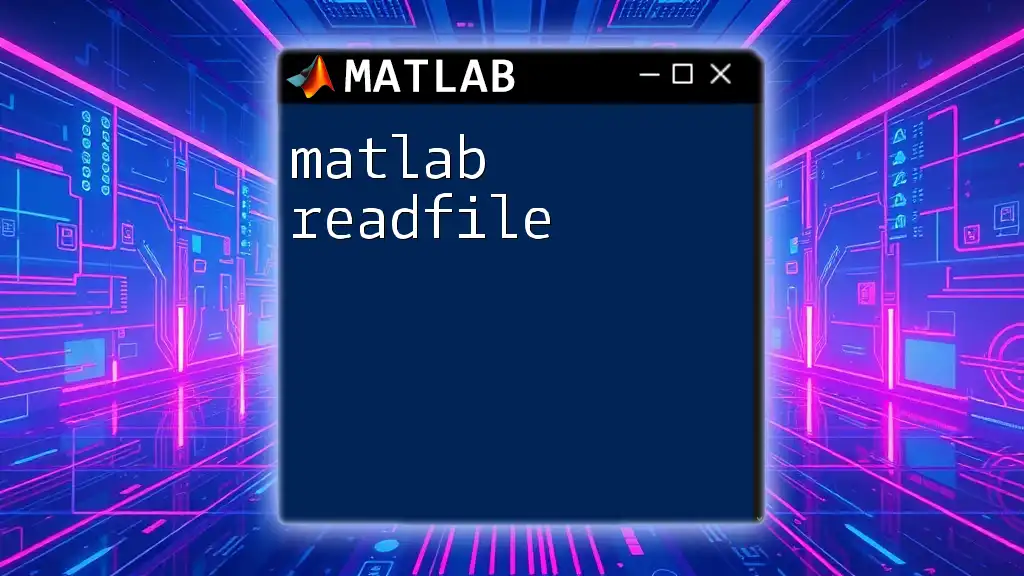
Implementing Median Filter in MATLAB
Basic Syntax for MATLAB Median Filter
In MATLAB, the built-in function `medfilt2` is employed for applying a median filter to 2-dimensional images. The basic syntax is:
filtered_image = medfilt2(original_image, [m n]);
Where `[m n]` specifies the size of the filtering window.
Setting Parameters
The parameters `[m n]` define the dimensions of the filtering kernel. Commonly used sizes include `[3 3]`, `[5 5]`, and `[7 7]`. Larger kernels will remove more noise but can lead to increased image blurring. Therefore, selecting the right window size is essential for achieving the desired filtering effect.
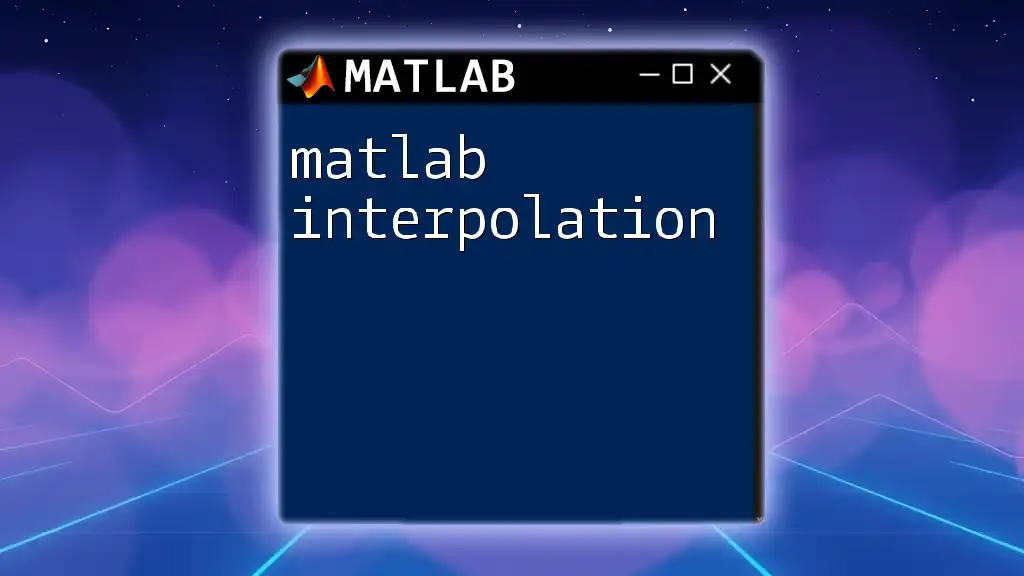
Practical Examples
Example 1: Basic Median Filtering on an Image
First, load an image into the MATLAB workspace and visualize it. Here's how to do it:
original_image = imread('image.png');
imshow(original_image);
Applying the Median Filter
Next, apply the median filter using the `medfilt2` function. Here's an example of filtering with a 3x3 kernel:
filtered_image = medfilt2(original_image, [3 3]);
imshow(filtered_image);
Example 2: Comparing Original and Filtered Images
To visualize the differences between the original and filtered images, you can display them side by side:
figure;
subplot(1, 2, 1);
imshow(original_image);
title('Original Image');
subplot(1, 2, 2);
imshow(filtered_image);
title('Filtered Image');
This comparison helps in understanding the effectiveness of the median filter in noise reduction while maintaining the image's essential features.
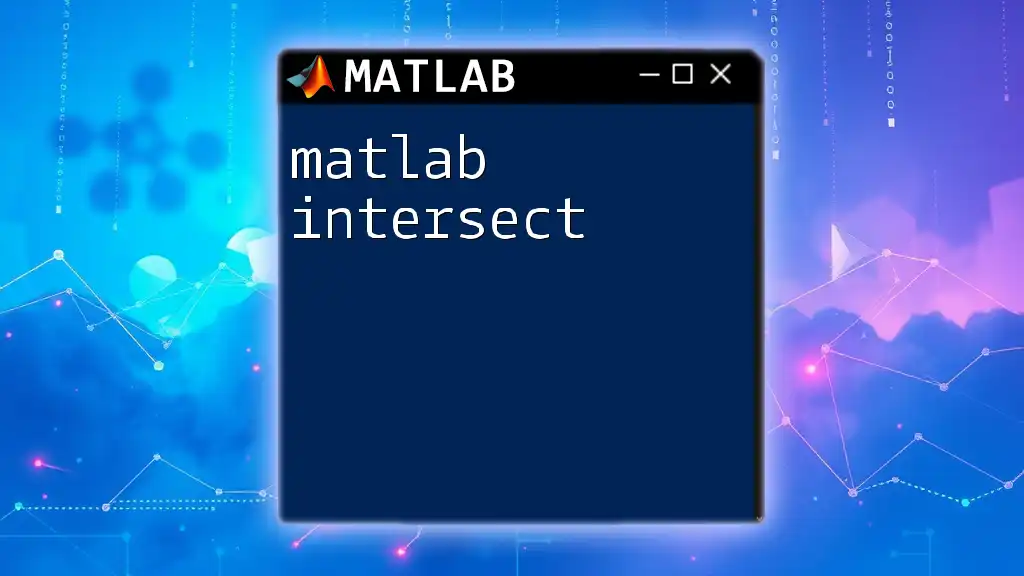
Advanced Techniques
Adaptive Median Filtering
While the standard median filter is effective, sometimes it may not suffice in varying noise conditions. Adaptive median filtering adjusts the filter size based on local image characteristics, allowing for greater flexibility. Unlike the standard approach, adaptive median filters dynamically calculate the median based on the statistical properties of the local neighborhood.
Combining Median and Other Filters
For enhanced performance, median filters can be combined with other filtering techniques like Gaussian or bilateral filters. This hybrid approach can improve noise reduction without sacrificing the image's details.
% Hypothetical code structure for adaptive median filter application
% Note: This would need to be custom coded or retrieved from a library
filtered_image = adaptiveMedianFilter(original_image);

Performance Considerations
Computational Efficiency
While using `medfilt2`, it's essential to consider its computational efficiency. Larger images may lead to longer processing times, especially with larger kernel sizes. Experimenting with different sizes and evaluating performance through timing functions can help strike a balance between speed and filtering quality.
Alternative Functions
MATLAB also offers `medfilt1` for one-dimensional signals, making it suitable for applications such as time-series data filtering. The syntax for applying a 1D median filter is as follows:
filtered_signal = medfilt1(original_signal, windowSize);
This allows users to employ median filtering on a variety of data types beyond just 2D images.
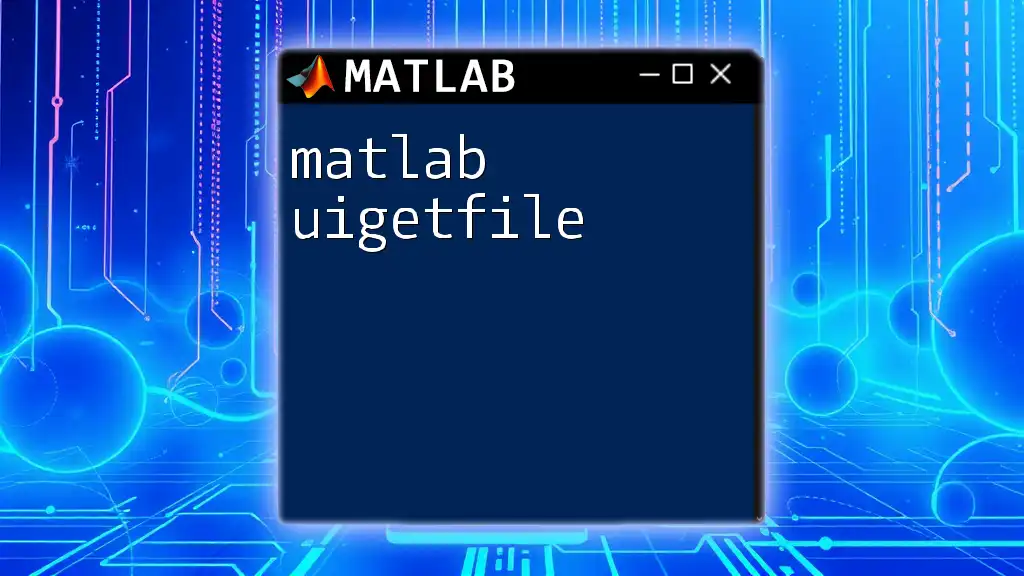
Common Issues and Troubleshooting
Artifacts and Unexpected Results
When using a median filter, artifacts can arise, especially when processing images with fine details or low contrast. If you encounter unexpected results, consider adjusting the kernel size or experimenting with different filtering techniques. Additionally, preprocessing the image to enhance contrast might yield better filtering outcomes.
Testing and Experimentation
To fully leverage the capabilities of the median filter, users are encouraged to experiment with various window sizes and observe their effects. MATLAB's powerful visualization capabilities make it easy to compare filtered images directly with original noisy images.
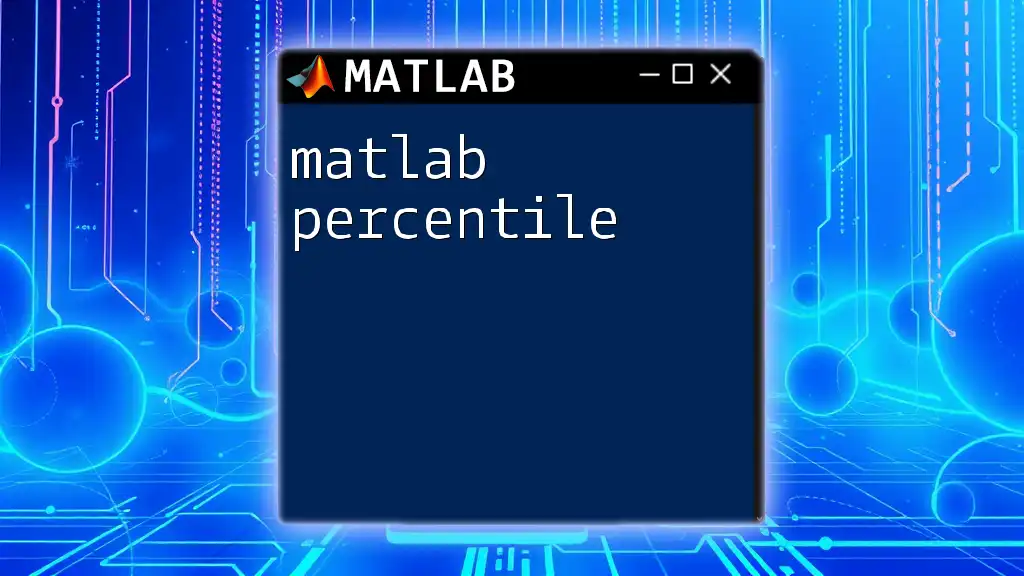
Conclusion
In summary, the MATLAB median filter is a powerful tool for noise reduction in images and signals. By understanding the underlying principles and mastering its implementation, users can significantly enhance image quality without losing vital information. By practicing adaptive filtering techniques and integrating median filters with others, you can further expand your filtering arsenal.
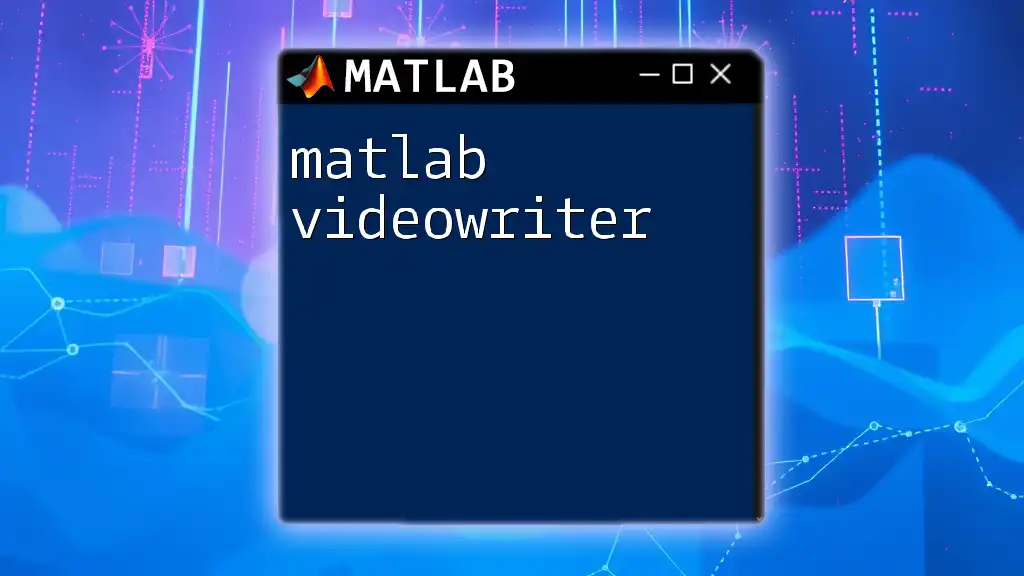
Additional Resources
To deepen your understanding of MATLAB median filters and image processing, refer to MATLAB documentation and community forums. Engaging with the community can provide invaluable insights and resources to assist you in your journey of mastering MATLAB median filters and becoming proficient in digital image processing.

